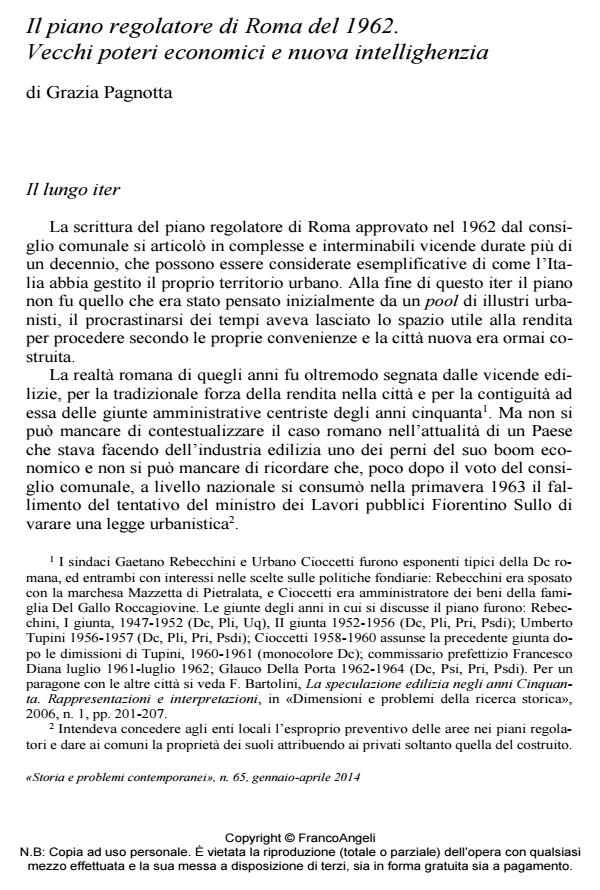Il piano regolatore di Roma del 1962. Vecchi poteri economici e nuova intellighenzia
Titolo Rivista STORIA E PROBLEMI CONTEMPORANEI
Autori/Curatori Grazia Pagnotta
Anno di pubblicazione 2014 Fascicolo 2014/65
Lingua Italiano Numero pagine 20 P. 65-84 Dimensione file 213 KB
DOI 10.3280/SPC2014-065003
Il DOI è il codice a barre della proprietà intellettuale: per saperne di più
clicca qui
Qui sotto puoi vedere in anteprima la prima pagina di questo articolo.
Se questo articolo ti interessa, lo puoi acquistare (e scaricare in formato pdf) seguendo le facili indicazioni per acquistare il download credit. Acquista Download Credits per scaricare questo Articolo in formato PDF

FrancoAngeli è membro della Publishers International Linking Association, Inc (PILA)associazione indipendente e non profit per facilitare (attraverso i servizi tecnologici implementati da CrossRef.org) l’accesso degli studiosi ai contenuti digitali nelle pubblicazioni professionali e scientifiche
The approval, by the City council in 1962, of the Roman master plan was preceded by a very long debate on two conflicting hypotheses: the first outlining an eastward expansion, as defined by urban culture, the latter a southward one. This second hypothesis won because supported by Democrazia Cristiana, the ruling party in Rome during those years, that had the land rent as its referent. In this long story a new "intelligentsia" - consisting of planners, Liberals, Communists and first Italian environmental group - coagulated to support the first hypothesis, aided by a new investigative journalism.
Grazia Pagnotta, Il piano regolatore di Roma del 1962. Vecchi poteri economici e nuova intellighenzia in "STORIA E PROBLEMI CONTEMPORANEI" 65/2014, pp 65-84, DOI: 10.3280/SPC2014-065003